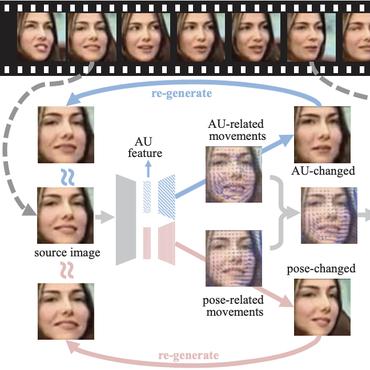Fast and Effective Adaptation of Facial Action Unit Detection Deep Model
Detecting facial action units (AU) is one of the fundamental steps in automatic recognition of facial expression of emotions and cognitive states. Though there have been a variety of approaches proposed for this task, most of these models are trained only for the specific target AUs, and as such they fail to easily adapt to the task of recognition of new AUs (i.e., those not initially used to train the target models). In this paper, we propose a deep learning approach for facial AU detection that can easily and in a fast manner adapt to a new AU or target subject by leveraging only a few labeled samples from the new task (either an AU or subject). To this end, we propose a modeling approach based on the notion of the model-agnostic meta-learning, originally proposed for the general image recognition/detection tasks (e.g., the character recognition from the Omniglot dataset). Specifically, each subject and/or AU is treated as a new learning task and the model learns to adapt based on the knowledge of the previous tasks (the AUs and subjects used to pre-train the target models). Thus, given a new subject or AU, this meta-knowledge (that is shared among training and test tasks) is used to adapt the model to the new task using the notion of deep learning and model-agnostic meta-learning. We show on two benchmark datasets (BP4D and DISFA) for facial AU detection that the proposed approach can be easily adapted to new tasks (AUs/subjects). Using only a few labeled examples from these tasks, the model achieves large improvements over the baselines (i.e., non-adapted models).
PDF Abstract


